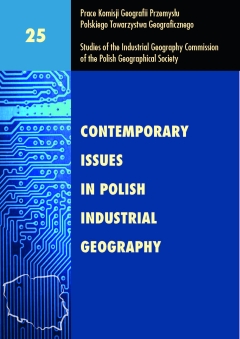The Role of Institutional Context in the Development of the SME Biotech Sector in Poland
DOI:
https://doi.org/10.24917/20801653.25.7Keywords:
Biotech, entrepreneurial behaviour, institutional challenges, PolandAbstract
Whilst Poland is argued to represent one of the largest and most entrepreneurial economiesin CE with huge potential for development of the SME biotech industry, this sector remains relativelyunderdeveloped. In this paper, we explore reasons for this apparent anomaly, focusing on the interrelationshipsbetween institutional context and entrepreneurial behaviour. We adopt Smallbone andWelter’s (2009a, b) typology (Welter, Smallbone, 2011) of entrepreneurial behaviour in constructinga case study of the biotech SME industry in Poland, concluding that the sector faces particular institutionalchallenges which entrepreneurs react to in a variety of ways. We conclude that Poland presentsserious obstacles to a knowledge-intensive sector such as biotech.Downloads
Metrics
References
Bajka o polskiej nauce. (2012). Retrieved April 25, 2012, from http://bioinfo.pl/about.html.
Bartholomew, S. (1997). National systems of biotechnology innovation: complex interdependence in the global system. Journal of International Business Studies, 28(2), 241–267.
Clarysse, D., Degroof, J.-J., Heirman, A. (2003). Growth paths of technology-based companies, in life sciences and information technology. European Commission, Directorate-General for Enterprises, Innovation Papers, 32.
Estrin, S., Mickiewicz, T. (2010). Entrepreneurship in Transition Economies: The Role of Institutions and Generational Change. Institute of the Study of Labour. Discussion Paper No. 4805.
Froud, J., Johal, S., Leaver, A., Williams, K. (2006). Financialization and strategy: narrative and numbers. London: Routledge, Taylor and Francis.
Haslam, C., Tsitsianis, N., Gleadle, P. (2011). UK bio-pharma: innovation, re-invention and capital at risk. Edinburgh: The Institute of Chartered Accountants of Scotland.
Kuzdraliński, A. (2012). “Polska bioinformatyka stosowana”, interview with Leszek Rychlewski, the founder of BioInfoBank Institute. Retrieved April 25, 2012, from http://www.e-biotechnologia. pl/Artykuly/Bioinformatyka-stosowana/.
Malo, S., Norus, J. (2009). Growth dynamics of dedicated biotechnology firms in transition economies. Evidence from the Baltic countries and Poland. Entrepreneurship & Regional Development, 21(5/6), 481–502.
Manolova, T., Eunni, R.V., Gyoshev, B. (2008). Institutional environments for entrepreneurship: Evidence from emerging economies in Eastern Europe. Entrepreneurship Theory and Practice, 32(1), 203–218.
Moore, A. (2004). Accession without concession. European Molecular Biology Organization, Reports 5, 935–938.
Mroczkowski, T., Elms, H. (2009). Tracking progress: two approaches to biotechnology developmentcases from Central Europe. Journal of Commercial Biotechnology, 15(3), 227–235.
Nauka i Technika w Polsce w 2009 roku. (2011). Warszawa: Main Statistical Office, Statistical Office in Szczecin.
Niosi, J. (2011). Complexity and path dependence in biotechnology innovation systems. Industrial and Corporate Change, 20(6), 1795–1826.
North, D.C. (1990). Institutions, Institutional Change, and Economic Performance. Cambridge: Cambridge University Press.
North, D.C. (1994). Economic Performance through Time. American Economic Review, 84(3), 359– 368.
Peng, M.W. (2000). Business Strategies in Transition Economies. Thousand Oaks, CA, and London: Sage.
Peng, M.W. (2003). Institutional transitions and strategic choices. Academy of Management Review, 28(2), 275–286.
Piasecki, B., Rogut, A. (1993). Self-regulation of SME sector development at a more advanced stage of transformation. The 20th Annual Conference of E.A.R.I.E., Tel-Aviv, September 1993.
Raport na temat barier komercjalizacji wyników badań naukowych w dziedzinie life science w Małopolsce. (2007). Kraków: Jagiellońskie Centrum Innowacji.
Rogut, A., Cieślak, M. (2009). A Portrait of Regional Technology Transfer Institutions. In: B. Piasecki, K. Kubiak (eds.), Partnership for Innovation. Łódź: Wydawnictwo SWSPiZ, 249–262.
Smallbone, D., Welter, F. (2006). Conceptualising Entrepreneurship in a Transition Context. International Journal of Entrepreneurship and Small Business, 3(2), 190–206.
Smallbone, D., Welter, F. (2009a). Entrepreneurial Behaviour in Transition Environments. In: M.-Á. Galindo, J. Guzman, D. Ribeiro (eds.), . NEntrepreneurship and Business in Regional Economicsew York: Springer, 211–228.
Smallbone, D., Welter, F. (2009b). Entrepreneurship and Small Business Development in Post-Socialist Economies. London: Routledge.
Smallbone, D., Welter, F. (2010). Entrepreneurship and the Role of Government in Post-Socialist Economies: Some Institutional Challenges. Historical Social Research – Historische Sozialforschung, 35(2), 320–333.
Smallbone, D., Welter, F., Voytovich, A., Egorov, I. (2010). Government and entrepreneurship in transition economies: the case of small firms in business services in Ukraine. The Service Industries Journal, 30(5), 655–670.
Suurna, M. (2011). The developments in the business models of biotechnology in the Central and Eastern European countries: the example of Estonia. Journal of Commercial Biotechnology, 17, 84–108.
Sztompka, P. (1996). Looking Back: The Year 1989 as a Cultural and Civilizational Break. Communist and Post-Communist Studies, 29(2), 115–129.
Van Beuzekom, B., Arundel, A. (2009). OECD Biotechnology Statistics. Paris: OECD.
Welter, F. (2011). Contextualizing Entrepreneurship – Conceptual Challenges and Ways Forward. Entrepreneurship: Theory and Practice, 35(1), 165–184.
Welter, F., Smallbone, D. (2011). Institutional Perspectives on Entrepreneurial Behaviour in Challenging Environments. Journal of Small Business Management, 49(1), 107–125.
Witek, R. (2008). Ochrona i komercjalizacja wyników badań uzyskiwanych we współczesnych naukach przyrodniczych. WTS Rzecznicy Patentowi, Witek, Śnieżko i Partnerzy. Retrieved April 25, 2012, from http://www.wtspatent.pl/files/pl6.pdf.
Downloads
Published
How to Cite
Issue
Section
License
Articles are published under the terms of the Creative Commons License (CC BY-ND 4.0; Attribution– NoDerivs).

